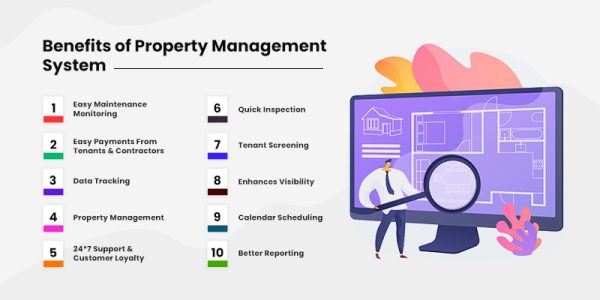
Best Practices for Tenant Screening and Selection
Selecting the right tenants is a crucial aspect of property management that can significantly impact the success and profitability of rental investments. The process of tenant screening and selection requires careful consideration and adherence to best practices to ensure a secure and harmonious landlord-tenant relationship. In this blog post, we will explore key best practices for effective tenant screening and selection, emphasizing the importance of a thorough and systematic approach.
How can rental criteria be made transparent and clear
Creating transparent and clear rental criteria involves outlining specific requirements and expectations for prospective tenants. This includes clearly defining financial qualifications, such as income and credit score thresholds, as well as rental history criteria. Providing detailed information on application processes, fees, and lease terms contributes to transparency. Property managers should communicate these criteria through various channels, including online platforms, rental listings, and in-person interactions, ensuring that potential tenants have easy access to the information. Clarity in rental criteria not only facilitates a smoother application process but also sets clear expectations, reducing misunderstandings and disputes down the line. By prioritizing transparency, property managers can attract qualified tenants and establish a foundation for a positive landlord-tenant relationship.
Read More About Tenant Management Services
How to implement a standardized application process
Implementing a standardized application process is essential for a streamlined and fair tenant selection. Begin by creating a comprehensive rental application form that gathers necessary information, including personal details, rental history, and references. Ensure accessibility by offering both online and in-person submission options. Clearly communicate criteria for tenant evaluation, covering aspects such as credit scores, income requirements, and rental history standards. Implement a consistent review process for all applicants, minimizing biases and promoting fairness. Utilize technology to automate and track the application process, enhancing efficiency. By enforcing a standardized approach, property managers can simplify the application process, maintain transparency, and make informed decisions, ultimately contributing to a more equitable and effective tenant selection process.
How to ensure comprehensive background checks
Ensuring comprehensive background checks is pivotal in selecting reliable tenants. Begin by obtaining written consent from applicants to conduct thorough checks, including criminal history, credit reports, and eviction records. Leverage reputable background screening services to access accurate and up-to-date information. Establish clear criteria for what constitutes an acceptable background, considering factors like the nature and recency of criminal offenses. Regularly review and update the screening process to align with legal regulations. By consistently applying a comprehensive approach to background checks, property managers can make informed decisions, mitigate risks, and create a secure and trustworthy rental community.
Read More About Property Management Services.
How to verify income and employment details efficiently
Efficiently verifying income and employment details is integral to the tenant screening process. Begin by requesting recent pay stubs, employment verification letters, or tax returns to authenticate the applicant’s income. Establish clear criteria for acceptable forms of documentation and ensure that the verification process is consistent for all applicants. Utilizing online platforms or third-party verification services can streamline the process, allowing for quick and secure access to employment and income information. Property managers should approach this task with diligence, confirming the stability and reliability of an applicant’s financial standing to make informed decisions and maintain a financially secure rental environment.
How to efficiently check rental references
Efficiently checking rental references is crucial in ensuring reliable tenant selection. Start by requesting references from previous landlords and, if applicable, property management companies. Utilize a standardized questionnaire to gather information on the applicant’s rental history, including their payment consistency, adherence to lease terms, and overall conduct as a tenant. Establish a streamlined process for contacting references promptly, seeking insights into the applicant’s reliability, communication, and maintenance of the rental property. By conducting thorough yet efficient reference checks, property managers can gain valuable insights into the applicant’s past rental behavior, aiding in the decision-making process and ultimately contributing to a well-informed and reliable tenant selection.
Conclusion:
In conclusion, implementing best practices for tenant screening and selection is essential for landlords and property managers aiming to create a secure and successful rental experience. By establishing clear criteria, conducting thorough background checks, verifying income and employment, checking rental references, evaluating creditworthiness, considering rental history, and meeting prospective tenants in person, property owners can make informed decisions that contribute to a positive and mutually beneficial landlord-tenant relationship.Adhering to these best practices not only minimizes the risk of problematic tenants but also fosters a rental environment where responsible tenants feel valued and secure. As the rental market continues to evolve, landlords who prioritize effective tenant screening and selection will likely experience increased satisfaction, reduced turnover, and enhanced overall property value.
Related Posts
The Best Residential Plots for Sale in Amaravati
The Best Residential Plots for Sale in Amaravati: A Comprehensive Guide Amaravati, the vibrant capital…
Top Locations for CRDA Approved Plots in Amaravathi
Top Locations for CRDA Approved Plots in Amaravathi Choosing the right location for investing in…
Why Invest in CRDA Approved Plots in Amaravathi
Why Invest in CRDA Approved Plots in Amaravathi Investing in CRDA (Capital Region Development Authority)…
How to Create a Tenant-Friendly Property: Tips for Landlords
Title: Why Invest in CRDA Approved Plots in Amaravathi Investing in CRDA (Capital Region Development…
The Role of Technology in Modern Property Management
Streamlining Property Management: The Impact of Technology in Modern Real Estate In the ever-evolving landscape…
Common Challenges in Tenant Management and How to Overcome Them
Common Challenges in Tenant Management and How to Overcome Them Tenant management is a crucial…
Essential Qualities to Look for in a Property Management Company
Essential Qualities to Look for in a Property Management Company Choosing the right property management…
Tips for Building a Strong Community in Multi-Family Rental Properties
10 Proven Strategies for Cultivating a Thriving Community in Multi-Family Rental Properties In the realm…
Best Practices for Conducting Background Checks on Potential Tenants
Ensuring Reliable Tenants: Best Practices for Background Checks In the realm of property management, securing…
Integrating Advanced Tech in Property Management
Integrating Advanced Technology into Property Management Services for Enhanced Efficiency In an era defined by…
Cost-Effective Solutions for Managing Maintenance in Property Management Services
Cost-Effective Solutions for Managing Maintenance in Property Management Services. In the realm of property management…
The Role of Property Management in Community Living
The Role of Property Management in Community Living Property management plays a pivotal role in…
Effective Tenant Retention Strategies
Effective Tenant Retention Strategies Effective tenant retention strategies are essential for landlords and property…
Benefits of Professional Property Management for Overseas Investors.
Benefits of Professional Property Management for Overseas Investors. Professional property management offers invaluable benefits for overseas…
The Future of Real Estate: Trends in Property Management
The Future of Real Estate: Trends in Property Management The future of real estate holds…

















